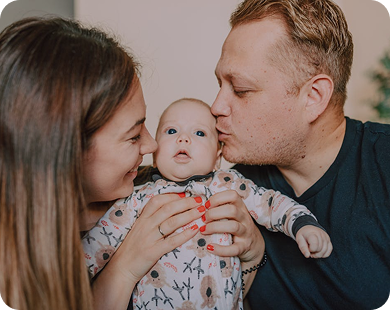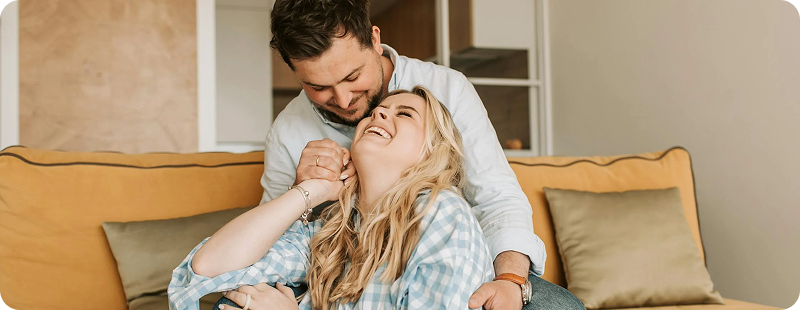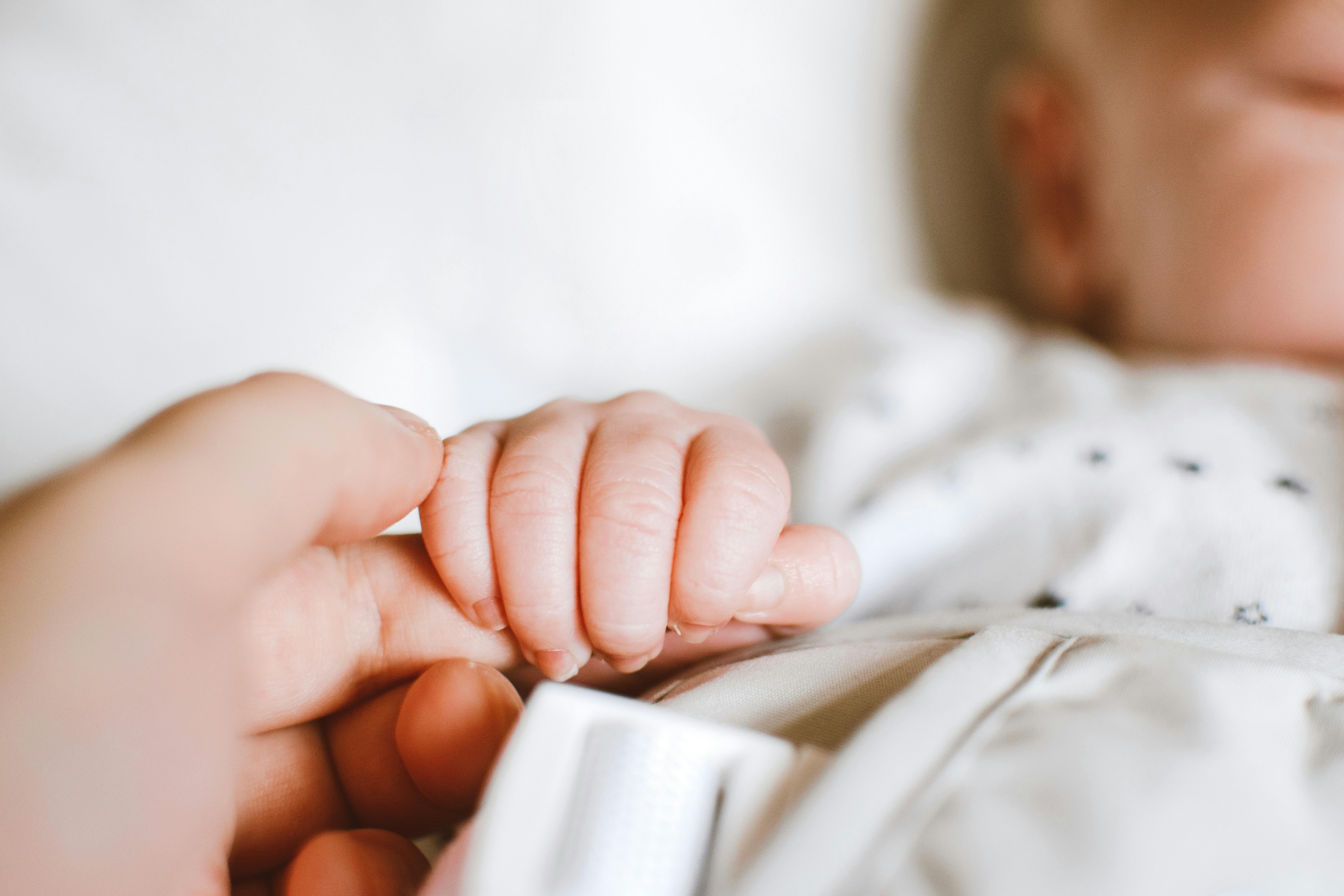Deciding who provides eggs and who carries the pregnancy is one of the most personal and important decisions couples face in their fertility journey. This choice involves medical, emotional, and practical considerations that require careful evaluation with your fertility team.
Understanding the Decision-Making Process
When you're exploring fertility treatments as a couple, determining who provides eggs versus who carries the pregnancy involves multiple factors. Your fertility specialist will evaluate both partners' reproductive health, age, medical history, and personal preferences to help guide this important decision.
The choice isn't always straightforward. Sometimes medical factors clearly indicate the best path forward, while other times you'll have options to consider based on your unique circumstances and goals.
| Factor to Consider | Impact on Decision | Medical Evaluation Needed |
|---|---|---|
| Egg Quality and Quantity | Determines viability of using own eggs | AMH testing, antral follicle count |
| Uterine Health | Affects ability to carry pregnancy | Hysteroscopy, ultrasound evaluation |
| Age Considerations | Influences success rates significantly | Comprehensive fertility assessment |
| Medical History | May contraindicate certain approaches | Complete medical review |
| Personal Preferences | Guides treatment selection | Counseling and discussion |
Medical Factors That Influence the Choice
Your fertility specialist will conduct comprehensive evaluations to understand each partner's reproductive potential. Age plays a crucial role in egg quality, with women over 35 experiencing declining egg quality and quantity that may impact treatment success.
Ovarian reserve testing helps determine egg quantity and quality. If one partner has significantly better ovarian reserve, this often guides the decision about who should provide eggs. Similarly, uterine health assessments reveal which partner is better suited to carry the pregnancy.
Previous pregnancy history, including miscarriages or pregnancy complications, influences recommendations. Partners with a history of successful pregnancies may be preferred carriers, while those with recurrent pregnancy loss might benefit from using donor eggs or having their partner carry.
Age and Fertility Success Rates
Age significantly impacts both egg quality and pregnancy success rates. According to reproductive endocrinology research, success rates decline notably after age 35, with more dramatic decreases after 40.
| Age Range | Live Birth Rate per Cycle | Miscarriage Risk | Recommendation |
|---|---|---|---|
| Under 35 | 40-50% | 10-15% | Own eggs typically recommended |
| 35-37 | 30-40% | 15-20% | Own eggs often viable option |
| 38-40 | 20-30% | 20-25% | Consider egg quality testing |
| 41-42 | 10-15% | 25-35% | Donor eggs may be recommended |
| Over 42 | 5-10% | 35-50% | Donor eggs typically advised |
These statistics help guide decisions, but individual circumstances vary significantly. Some women over 40 have excellent egg quality, while younger women may face premature ovarian aging or other factors affecting egg quality.
Evaluating Egg Quality and Ovarian Reserve
Understanding your egg quality involves several key tests. Anti-Müllerian Hormone (AMH) levels indicate ovarian reserve, while antral follicle counts provide additional insight into egg quantity.
Day 3 FSH and estradiol levels offer information about ovarian function. Higher FSH levels may indicate declining ovarian reserve, while normal levels suggest better reproductive potential. Your fertility specialist interprets these results alongside your age and medical history.
Sometimes fertility supplements can improve egg quality, but significant improvements typically require several months. Your doctor may recommend trying to optimize egg quality before making final decisions about treatment approaches.
Uterine Health Assessment
Carrying a pregnancy requires a healthy uterine environment. Your fertility team evaluates uterine structure, endometrial thickness, and overall reproductive health to determine carrying capacity.
Conditions like uterine fibroids, adenomyosis, or structural abnormalities may impact pregnancy success. Some conditions can be treated before attempting pregnancy, while others might make carrying pregnancy inadvisable.
| Uterine Condition | Impact on Pregnancy | Treatment Options | Carrying Recommendation |
|---|---|---|---|
| Normal Uterus | Optimal environment | None needed | Excellent candidate |
| Small Fibroids | Usually minimal impact | Monitoring | Generally suitable |
| Large Fibroids | May affect implantation | Surgical removal | Treat first, then reassess |
| Adenomyosis | Increased miscarriage risk | Medical management | Careful monitoring needed |
| Uterine Septum | Higher pregnancy loss | Surgical correction | Repair recommended first |
Endometrial receptivity testing may be recommended if there's concern about implantation potential. This specialized testing helps determine the optimal timing for embryo transfer and whether the uterine environment is suitable for pregnancy.
The ROPA Method for Same-Sex Female Couples
For same-sex female couples, the ROPA method (Reception of Oocytes from Partner) offers a unique opportunity for both partners to participate biologically in creating their baby. One partner provides the eggs while the other carries the pregnancy.
This approach allows both partners to have a biological connection to their child. The decision about who provides eggs versus who carries often depends on age, ovarian reserve, and personal preferences about experiencing pregnancy.
Success rates with ROPA are comparable to traditional IVF when both partners have good reproductive health. The key is thorough evaluation of both partners to optimize the chances of success with this collaborative approach.
Emotional Considerations in Decision Making
Beyond medical factors, emotional readiness plays a crucial role in these decisions. Some individuals feel strongly about using their own genetic material, while others prioritize the pregnancy experience.
The emotional shift from own to donor eggs can be significant and requires processing time. Similarly, choosing not to carry a pregnancy when you're physically able involves complex feelings that benefit from professional counseling support.
Consider how each option aligns with your vision of parenthood. Some find genetic connection most important, while others prioritize the pregnancy and birth experience. Neither choice is right or wrong – it's about what feels authentic for your family.
Financial and Practical Considerations
Treatment costs vary significantly depending on your chosen approach. Using your own eggs with your own uterus typically costs less than treatments involving donor eggs or gestational carriers.
| Treatment Approach | Typical Cost Range | Insurance Coverage | Additional Considerations |
|---|---|---|---|
| Own eggs, own uterus | $12,000-15,000 | Often partially covered | May require multiple cycles |
| Donor eggs, own uterus | $25,000-30,000 | Limited coverage | Higher success rates |
| Own eggs, gestational carrier | $75,000-100,000 | Rarely covered | Complex legal requirements |
| Donor eggs, gestational carrier | $100,000-125,000 | Rarely covered | Highest complexity |
Insurance coverage varies widely, with some plans covering basic IVF but excluding donor eggs or gestational carriers. Understanding your financial options helps inform treatment decisions alongside medical factors.
Success Rates by Treatment Approach
Success rates vary significantly based on the treatment approach chosen. Using younger, high-quality eggs generally produces better outcomes regardless of who carries the pregnancy.
According to the American Society for Reproductive Medicine, donor egg cycles have consistently higher success rates than cycles using a patient's own eggs, particularly for women over 35. However, fresh versus frozen egg outcomes show minimal differences with current vitrification techniques.
When evaluating success rates, consider your specific circumstances rather than general statistics. Your fertility team can provide personalized success rate estimates based on your individual medical profile and chosen treatment approach.
Making the Final Decision
The decision-making process should involve thorough discussions with your fertility team, including physicians, nurses, and counselors. Take time to process the medical information alongside your personal values and preferences.
Consider seeking a second opinion if you're uncertain about recommendations. Different fertility specialists may have varying approaches or insights that help clarify your options.
Remember that this decision isn't permanent for future pregnancies. Many couples use different approaches for subsequent children based on changing circumstances or preferences.
Working with Your Fertility Team
Your fertility team should provide comprehensive support throughout this decision-making process. This includes medical evaluations, counseling services, and ongoing communication about your options and concerns.
At Avida Fertility, we understand that these decisions involve much more than medical factors. Our team provides personalized guidance that considers your unique circumstances, values, and goals for building your family.
We offer comprehensive evaluations for both partners, including advanced testing to assess egg quality, ovarian reserve, and uterine health. Our counseling services help you process the emotional aspects of these important decisions.
Frequently Asked Questions
Can we change our minds after starting treatment?
Yes, you can modify your treatment approach before beginning a cycle. However, once medications start or procedures begin, changes become more complex and may require starting over.
What if both partners have fertility challenges?
When both partners face fertility issues, your team will evaluate which challenges are most significant and recommend the approach most likely to succeed. This might involve donor eggs, gestational carriers, or both.
How do we decide if we have similar fertility potential?
When both partners have similar reproductive potential, personal preferences often guide the decision. Consider factors like who wants to experience pregnancy, work schedules, and other practical considerations.
Should age difference between partners influence our choice?
Age differences can be significant factors. Generally, eggs from the younger partner offer better success rates, while either partner may be suitable for carrying depending on overall health.
What if one partner is hesitant about the recommended approach?
Open communication and counseling help address hesitations. Sometimes additional information or time for processing helps partners align on treatment decisions. Never rush these important choices.
How long do we have to make this decision?
While fertility declines with age, you should take adequate time to make informed decisions. Most couples benefit from several weeks to process information and discuss options thoroughly.
Considering IVF treatment? Avida Fertility is here to support and guide you on your fertility journey. Reach out today for a personalized consultation and take the first step towards building your family with confidence.






.png)





.svg)
.svg)
